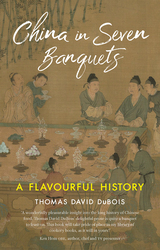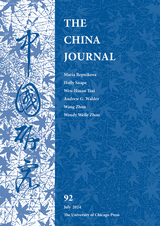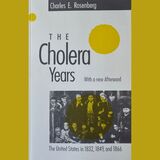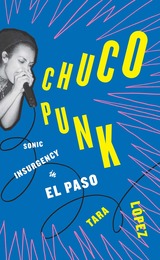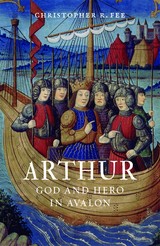
Touching on all of these classic aspects of the Arthur tale, Christopher R. Fee seeks to understand Arthur in terms of comparative mythology as he explores how the Once and Future King remains relevant in our contemporary world. From ancient legend to Monty Python, Arthur: God and Hero in Avalon discusses everything from the very earliest versions of the King Arthur myth to the most recent film and television adaptations, offering insight into why Arthur remains so popular—a hero whose story still speaks so eloquently to universal human needs and anxieties.
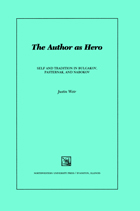
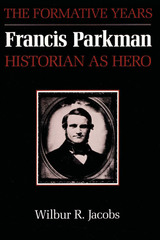
A historian who lived the kind of history he wrote, Francis Parkman is a major—and controversial—figure in American historiography. His narrative style, while popular with readers wanting a "good story," has raised many questions with professional historians. Was Parkman writing history or historical fiction? Did he color historical figures with his own heroic self-image? Was his objectivity compromised by his "unbending, conservative, Brahmin" values? These are some of the many issues that Wilbur Jacobs treats in this thought-provoking study.
Jacobs carefully considers the "apprenticeship" of Francis Parkman, first spent in facing the rigors of the Oregon Trail and later in struggling to write his histories despite a mysterious, frequently incapacitating illness. He shows how these events allowed Parkman to create a heroic self-image, which impelled his desire for fame as a historian and influenced his treatment of both the "noble" and the "savage" characters of his histories.
In addition to assessing the influence of Parkman's development and personality on his histories, Jacobs comments on Parkman's relationship to basic social and cultural issues of the nineteenth century. These include the slavery question, Native American issues, expansion of the suffrage to new groups, including women, and anti-Catholicism.
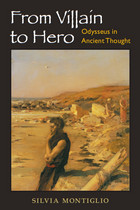
Praise for Silvia Montiglio
"[A] brilliant and important book. . . . "
---Journal of Religion, on Silence in the Land of Logos
"[A]n invigorating reevaluation of both the ancient symbolic landscape and our preconceptions of it."
---American Journal of Philology, on Wandering in Ancient Greek Culture
Best known for his adventures during his homeward journey as narrated in Homer's Odyssey, Odysseus remained a major figure and a source of inspiration in later literature, from Greek tragedy to Dante's Inferno to Joyce's Ulysses. Less commonly known, but equally interesting, are Odysseus' "wanderings" in ancient philosophy: Odysseus becomes a model of wisdom for Socrates and his followers, Cynics and Stoics, as well as for later Platonic thinkers. From Villain to Hero: Odysseus in Ancient Thought follows these wanderings in the world of ancient Greek and Roman philosophy, retracing the steps that led the cunning hero of Homeric epic and the villain of Attic tragedy to become a paradigm of the wise man.
From Villain to Hero explores the reception of Odysseus in philosophy, a subject that so far has been treated only in tangential or limited ways. Diverging from previous studies, Montiglio outlines the philosophers' Odysseus across the spectrum, from the Socratics to the Middle Platonists. By the early centuries CE, Odysseus' credentials as a wise man are firmly established, and the start of Odysseus' rehabilitation by philosophers challenges current perceptions of him as a villain. More than merely a study in ancient philosophy, From Villain to Hero seeks to understand the articulations between philosophical readings of Odysseus and nonphilosophical ones, with an eye to the larger cultural contexts of both. While this book is the work of a classicist, it will also be of interest to students of philosophy, comparative literature, and reception studies.
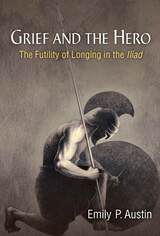
Grief and the Hero examines Achilles’ experience of the futility of grief in the context of the Iliad’s study of anger. No action can undo his friend Patroklos’ death, but the experience of death drives him to behave as though he can achieve something restorative. Rather than assuming that grief gives rise to anger, as most scholars have done, Grief and the Hero pays close attention to the poem’s representation of the origin of these emotions. In the Iliad, only Achilles’ grief for Patroklos is joined with the word pothê, “longing”; no other grief in the poem is described with this term. The Iliad depicts Achilles’ grief as the rupture of shared life—an insight that generates a new way of reading the epic. Achilles’ anguish drives him to extremes, oscillating between self-isolation and seeking communal expressions of grief; between weeping abundantly and relentlessly pursuing battle; between varied threats of mutilation, deeds of vengeance, and other vows. Yet his yearning for life shared with Patroklos is the common denominator. Here lies the profound insight of the Iliad. All of Achilles’ grief-driven deeds arise from his longing for life with Patroklos, and thus all of these deeds are, in a deep sense, futile. He yearns for something unattainable—undoing the reality of death. Grief and the Hero will appeal not only to scholars and students of Homer but to all humanists. Loss, longing, and even revenge touch many human lives, and the insights of the Iliad have broad resonance.
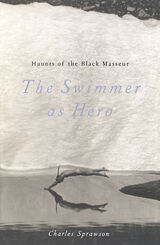
In a masterful work of cultural history, Charles Sprawson, himself an obsessional swimmer and fluent diver, explores the meaning that different cultures have attached to water. Sprawson compares the meaning various societies have assigned to swimming—from classical Greece and imperial Rome to nineteenth-century England and Germany and the U.S. and Japan in the last fifty years. Sprawson gives us fascinating glimpses of the great swimmer heroes: Byron leaping dramatically into the surf at Shelley’s beach funeral; Edgar Allen Poe’s lone and mysterious river-swims; Rupert Brooke swimming naked with Virginia Woolf; Hart Crane swallow-diving to his death in the Bay of Mexico; Johnny Weismuller as athlete and entertainer. Informed by the literature of Swinburne, Goethe, Scott Fitzgerald, and Yukio Mishima; the films of Reifenstahl and Vigo; the Hollywood “swimming musicals” of the 1930s; and delving in and out of Olympic history, Haunts of the Black Masseur is a celebration of swimming that explores aspects of culture in a heretofore unimagined way.
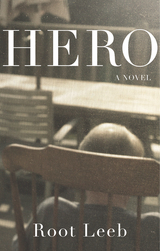
Inspired in part by King Lear, this enchanting novel of families, secrets, and love is the first of Root Leeb’s works to be translated into English and is sure to win new fans for this successful German writer.
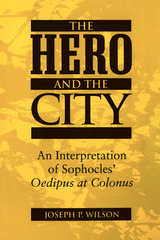
Joseph P. Wilson is Professor of Foreign Languages at the University of Scranton.
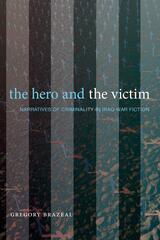
The emphasis on soldier criminality in Iraq War fiction can be partly explained by the rise of moral cosmopolitanism and its blurring of the traditional conceptual lines between war and crime. The anti-war literature of the twentieth century often presented fallen soldiers on both sides equally as victims and viewed the distinction between heroes and villains as part of the illusion that battlefield experience strips away. Written in the long shadow of Nuremberg, Iraq War fiction grapples with the possibility that the soldiers on one’s own side may not be the heroes in the story, or even the victims, but participants in a wrong, and perhaps even complicit in crimes. The Hero and the Victim contributes to the ongoing, public reexamination of American traditions by confronting a topic that has, up to now, been largely untouched: the moral celebration of military service.
The Hero and the Victim explores the theme of soldier criminality through close readings of several works by American authors, including Kevin Powers’s The Yellow Birds, Phil Klay’s Redeployment, Helen Benedict’s Sand Queen, Chris Kyle’s American Sniper, and Roy Scranton’s War Porn. This volume will be an essential text for students of American literature, historians of war culture, and any scholar interested in representations of the Iraq War.
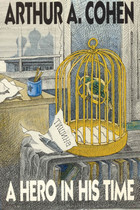
"Cohen has achieved here a tour de force, bringing the idea of poetry to life in a messy little man, no hero at all, not even that much of a poet. . . . [The novel] is stately as well as funny, an authentically noble account of a celebrant. . . . It is the true article."—Geoffrey Wolff, New York Times Book Review
"Arthur Cohen catches fire. . . . A Hero in His Time represents for him a great imaginative leap, for we are shown the interior mental landscape of a middle-aged Russian-Jewish minor poet and . . . most astonishing is that we believe, without question, in this poet."—Doris Grumbach, Village Voice
"A tremendous achievement. . . . To have made this tremendous imaginative leap from the heart of American Jewishness to the heart of Russian Jewishness was a daring thing to do, and it has been accomplished with absolute conviction."—The Sunday Times (London)
"A rich compound of high seriousness and robust comedy."—Newsweek
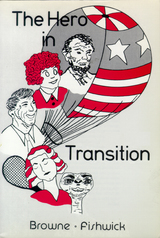
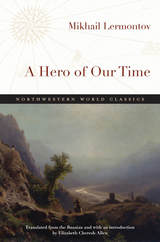
Translated from the Russian by Elizabeth Cheresh Allen
Mikhail Lermontov’s A Hero of Our Time was the first modern Russian novel. Published in 1840, it set a model of penetrating observation and psychological depth that would come to typify Russian literature. Its "hero," Grigory Pechorin, also established a character type that became known in Russian fiction as "the superfluous man"—widely familiar from Dostoevsky’s Notes from Underground. At once driven by pride and wracked by self-doubt, both shockingly self-revealing and blindly self-deceived, he flounders to affirm himself in a social world he despises yet yearns to dominate. Pechorin is a troubling and unforgettable character. And A Hero of Our Time, which has provoked much controversy, is a novel not only central to Russian literature but fundamental to the Western literary tradition of the antihero.
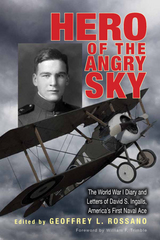
Hero of the Angry Sky draws on the unpublished diaries, correspondence, informal memoir, and other personal documents of the U.S. Navy’s only flying “ace” of World War I to tell his unique story. David S. Ingalls was a prolific writer, and virtually all of his World War I aviation career is covered, from the teenager’s early, informal training in Palm Beach, Florida, to his exhilarating and terrifying missions over the Western Front. This edited collection of Ingalls’s writing details the career of the U.S. Navy’s most successful combat flyer from that conflict.
While Ingalls’s wartime experiences are compelling at a personal level, they also illuminate the larger, but still relatively unexplored, realm of early U.S. naval aviation. Ingalls’s engaging correspondence offers a rare personal view of the evolution of naval aviation during the war, both at home and abroad. There are no published biographies of navy combat flyers from this period, and just a handful of diaries and letters in print, the last appearing more than twenty years ago. Ingalls’s extensive letters and diaries add significantly to historians’ store of available material.
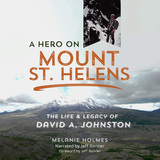
Melanie Holmes tells the story of Johnston's journey from a nature-loving Boy Scout to a committed geologist. Blending science with personal detail, Holmes follows Johnston through his encounters with Aleutian volcanoes, his work helping the Portuguese government assess the geothermal power of the Azores, and his dream job as a volcanologist with the U.S. Geological Survey. Interviews and personal writings reveal what a friend called “the most unjaded person I ever met,” an imperfect but kind and intelligent young scientist passionately in love with his life and work and determined to make a difference.
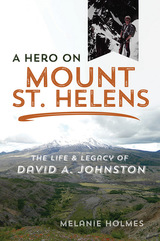
Melanie Holmes tells the story of Johnston's journey from a nature-loving Boy Scout to a committed geologist. Blending science with personal detail, Holmes follows Johnston through his encounters with Aleutian volcanoes, his work helping the Portuguese government assess the geothermal power of the Azores, and his dream job as a volcanologist with the U.S. Geological Survey. Interviews and personal writings reveal what a friend called “the most unjaded person I ever met,” an imperfect but kind and intelligent young scientist passionately in love with his life and work and determined to make a difference.
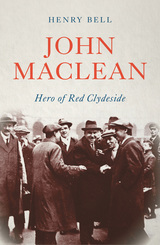
Feared by the government, adored by workers, celebrated by Lenin and Trotsky. The head of British Military Intelligence called John Maclean (1879–1923) “the most dangerous man in Britain.”
This new biography explores the events that shaped the life of a momentous man—from the Great War and the Great Unrest to the Rent Strike and the Russian Revolution. It examines his work as an organizer and educator, his imprisonment and hunger strike, and his rise to the position of Britain’s most famous revolutionary. At a moment when radical politics is drawing renewed attention and support, Maclean’s example of activism and commitment is as timely as ever.

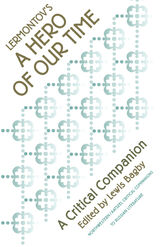

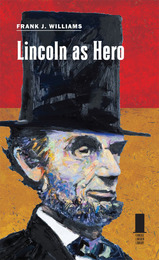
Lincoln as Hero shows how—whether it was as president, lawyer, or schoolboy—Lincoln extolled the foundational virtues of American society. Williams describes the character and leadership traits that define American heroism, including ideas and beliefs, willpower, pertinacity, the ability to communicate, and magnanimity. Using both celebrated episodes and lesser-known anecdotes from Lincoln’s life and achievements, Williams presents a wide-ranging analysis of these traits as they were demonstrated in Lincoln’s rise, starting with his self-education as a young man and moving on to his training and experience as a lawyer, his entry onto the political stage, and his burgeoning grasp of military tactics and leadership.
Williams also examines in detail how Lincoln embodied heroism in standing against secession and fighting to preserve America’s great democratic experiment. With a focused sense of justice and a great respect for the mandates of both the Declaration of Independence and the Constitution, Lincoln came to embrace freedom for the enslaved, and his Emancipation Proclamation led the way for the Thirteenth Amendment, which abolished slavery. Lincoln’s legacy as a hero and secular saint was secured when his lifeended by assassination as the Civil War was drawing to a close
Touching on Lincoln’s humor and his quest for independence, justice, and equality, Williams outlines the path Lincoln took to becoming a great leader and an American hero, showing readers why his heroism is still relevant. True heroes, Williams argues, are successful not just by the standards of their own time but also through achievements that transcend their own eras and resonate throughout history—with their words and actions living on in our minds, if we are imaginative, and in our actions, if we are wise.
Univeristy Press Books for Public and Secondary Schools 2013 edition
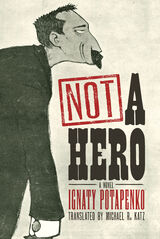
Between 1890 and 1893, Ignaty Potapenko published a number of works in which he presented the Russian intelligentsia with a new role model, the “mediocre, but common-sensical man,” whose diligence and steady devotion to the improvement of society are depicted as being more productive than the reckless heroism of the regime’s most outspoken, and sometimes violent, intellectual opponents. Not a Hero introduces the twenty-first-century reader to an important debate of the prerevolutionary period, a debate that is still relevant today: how to bring about social change within an oppressive and ossified political system without resorting to violence.
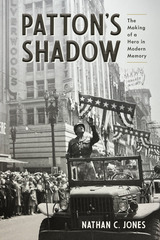
General George S. Patton’s legendary image was carefully crafted during World War II and continues to shape our understanding of American history and culture today. Historian Nathan C. Jones explores the creation of the Patton legend and its enduring legacy in Patton’s Shadow.

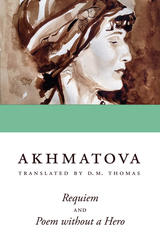
With this edition Swallow Press presents two of Anna Akhmatova’s best-known works that represent the poet at full maturity, and that most trenchantly process the trauma she and others experienced living under Stalin’s regime.
Akhmatova began the three-decade process of writing “Requiem” in 1935 after the arrests of her son, Lev Gumilev, and her third husband. The autobiographical fifteen-poem cycle primarily chronicles a mother’s wait—lining up outside Leningrad Prison every day for seventeen months—for news of her son’s fate. But from this limbo, Akhmatova expresses and elevates the collective grief for all the thousands vanished under the regime, and for those left behind to speculate about their loved ones’ fates. Similarly, Akhmatova wrote “Poem without a Hero” over a long period. It takes as its focus the transformation of Akhmatova’s beloved city of St. Petersburg—historically a seat of art and culture—into Leningrad. Taken together, these works plumb the foremost themes for which Akhmatova is known and revered. When Ohio University Press published D. M. Thomas’s translations in 1976, it was the first time they had appeared in English. Under Thomas’s stewardship, Akhmatova’s words ring clear as a bell.

Here is a bold new vision of one of America’s most distinguished and controversial poets. Vereen Bell gives us a subtly reasoned account of the pattern of Robert Lowell’s poetic life, of his struggle to live in “the world as is.” Bell contends that Lowell’s poetry is characterized above all by its chronic and systematic pessimism, but that, paradoxically, Lowell’s reluctance to accept the consequences of his own unsparing vision is what gives his poetry its vigor, richness, and tonal complexity. The Lowell that is revealed is spiritually disconsolate but at the same time unable to suppress a deep-seated idealism.
Drawing on his thorough knowledge of the complete Lowell canon, Bell devotes particular attention to eight of the volumes, concentrating on the last phase of Lowell’s career, from Notebook (and its revision, History) through Day by Day. His readings bring a new understanding of Lowell’s art.
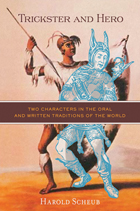
Scheub delves into the importance of trickster mythologies and the shifting relationships between tricksters and heroes. He examines protagonists that figure centrally in a wide range of oral narrative traditions, showing that the true hero is always to some extent a trickster as well. The trickster and hero, Scheub contends, are at the core of storytelling, and all the possibilities of life are there: we are taken apart and rebuilt, dismembered and reborn, defeated and renewed.

This book probes the narratives of poets who are exiled, tried or executed for their satire. Aesop, fabulist and riddle warrior, is assimilated to the pharmakos—the wretched human scapegoat who is expelled from the city or killed in response to a crisis—after satirizing the Delphians.
In much the same way, Dumezil's Indo-European heroes, Starkathr and Suibhne, are both warrior-poets persecuted by patron deities. This book views the scapegoat as a group's dominant warrior, sent out to confront predators or besieging forces. Both poets and warriors specialize in madness and aggression, are necessary to society, yet dangerous to society.
READERS
Browse our collection.
PUBLISHERS
See BiblioVault's publisher services.
STUDENT SERVICES
Files for college accessibility offices.
UChicago Accessibility Resources
home | accessibility | search | about | contact us
BiblioVault ® 2001 - 2024
The University of Chicago Press


